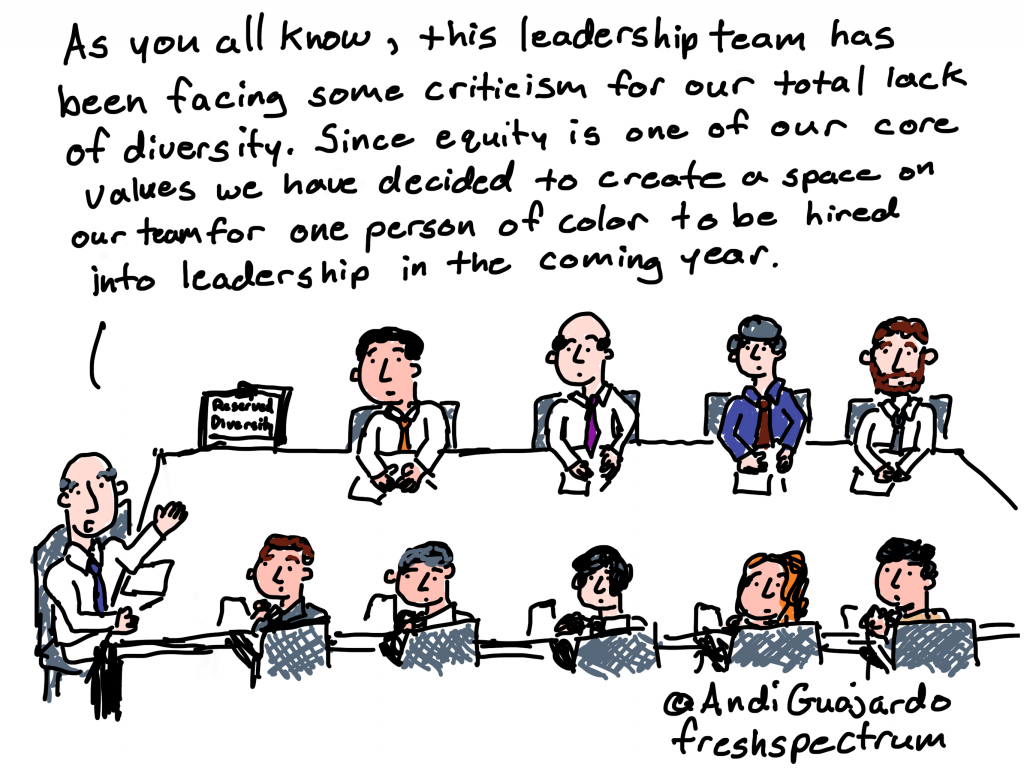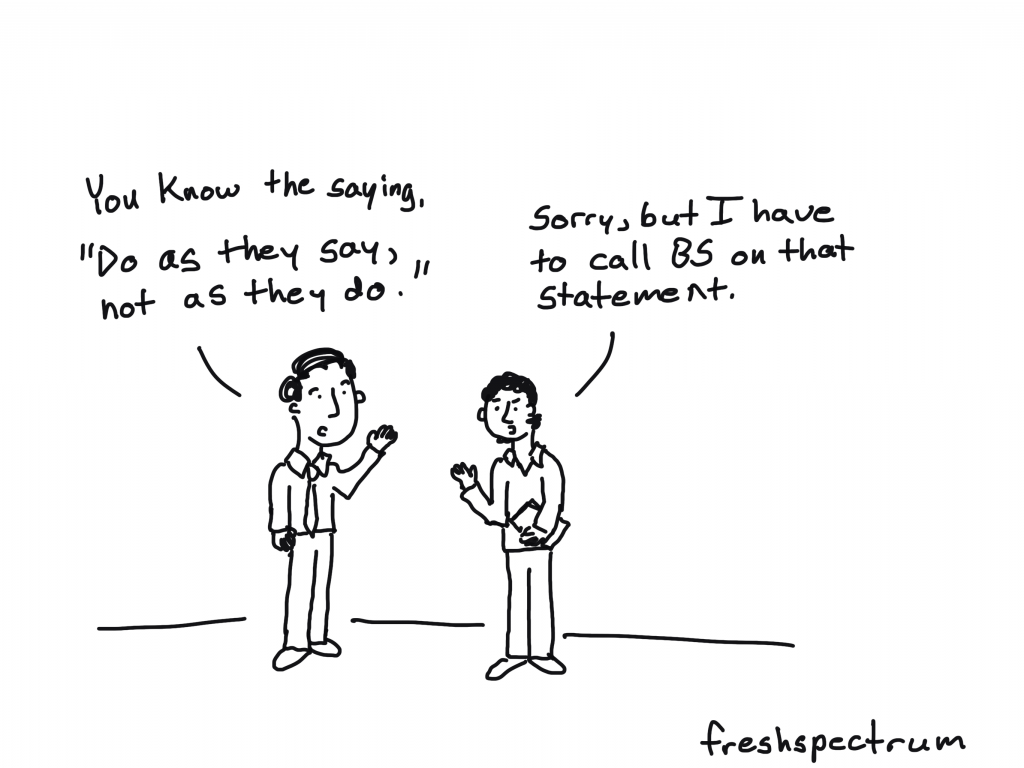This is an Eval Central archive copy, find the original at freshspectrum.com.
This is a series of posts providing quick overviews of important topics in research and evaluation. Each post in this series will include at least 3 cartoons from my archives and at least 3 links to recommended resources. I only give quotes here and recommend that you follow the links below each quote for more detailed information.

Three principles ground the Equitable Evaluation Framework
As foundations and nonprofits, and the consultants and philanthropy-serving organizations that support them, explore what it means to be about and for equity, they must consider how all their assets and efforts align.
We believe that evaluation for these entities must be re-imagined based on three principles:
EVALUATION WORK IS IN SERVICE OF AND CONTRIBUTES TO EQUITY
Production, consumption, and management of evaluation and evaluative work should hold at its core a responsibility to advance progress towards equity.
EVALUATIVE WORK SHOULD BE DESIGNED AND IMPLEMENTED IN A WAY THAT IS COMMENSURATE WITH THE VALUES UNDERLYING EQUITY WORK
It should be multi-culturally valid and oriented toward participant ownership.
EVALUATIVE WORK CAN AND SHOULD ANSWER CRITICAL QUESTIONS ABOUT THE:
Effect of a strategy on different populations and on the underlying systemic drivers of inequity, and the ways in which history and cultural context are tangled up in the structural conditions and the change initiative itself.
Equitable Evaluation Initiative – The Equitable Evaluation Framework

Supporting equitable evaluation without practicing it is hypocritical.
It also makes it harder for others to practice equitable evaluation by reinforcing professional norms and orthodoxies that are decidedly inequitable but still widely accepted and practiced. If we are truly committed to it, we have to be willing to bear potential risks to our revenue stream or client relationships.
Equitable Evaluation Framework Applies to all Evaluation – Center for Evaluation Innovation

Equitable evaluation affects everyone engaged in the process, including those who use evaluation findings. Its primary aim is not only to shed light on the factors that impede equity, but also to analyze and assess interventions, investments, and strategies through a lens of promoting equity.
